How do you like the title? Dramatic, right? While visiting Greece, you have zero chances to escape from the plenty of narrations related to Greek mythology. Greeks love those stories and take every opportunity to tell you about Zeus, Aphrodite, Hermes, Heracles (Hercules), Medusa, and many more. We enjoy them very much because of the passion people put into the telling. It is like they are talking about real heroes. Besides, the stories of these characters have a perfect dose of conflict, drama, passion, romance, treason, and death. You can listen for hours and stay on the edge of your seat, like when you watch your favorite thriller or drama.
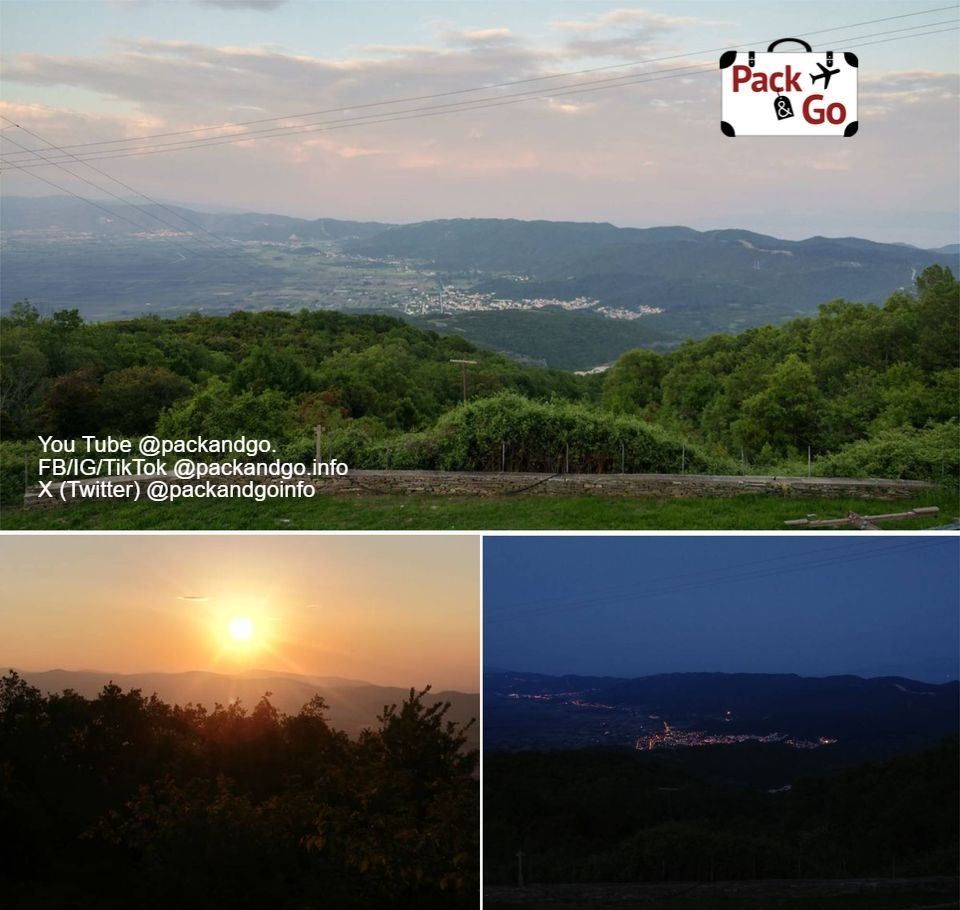
The stories about Orpheus have accompanied us since the beginning of this trip. Finally, while visiting Pangaion Mountain, we heard the complete Orpheus myth told fascinatingly by a very nice Greek man.
We have no idea what Orpheus' voice or music sounded like, but we could almost hear both as we followed the story. It was a fun experience because as the story progressed, M and I musicalized Orpheus' love tragedy in our heads with contemporary musical references. Stay there and read until the end to know who the hell was Orpheus? What did happen in Pangaion Mountain? Was it true or just a myth? Then you can decide if to visit it or not.
What was Orpheus famous for?
Orpheus was not the feared leader of large armies or a skilled fighter like Jason or Heracles (Hercules) were. But he only needed music and his songs to succeed. Yes! Orpheus was a music composer, singer, and lyre player. It is said that his music was as beautiful and captivating, that no creature on Earth was not enchanted by it. He had a big gift and through it, he becharmed humans, rocks, trees, wild beasts, sirens, and even the gods! Orpheus was also famous for being the protagonist of a tragic love story with Eurydice.
He lived in Thrace, in the Northeastern part of Greece, exactly where we are traveling right now! But, when it comes to where Orpheus was born, lived, and died, answers can differ based on who responds to you. It is not rare that every country or town offers you a different version. Contradictions are very common and Orpheus's story is not an exception so take it easy.
Who was Orpheus?

The version we got says, Orpheus was the son of the muse Calliope and Oeagrus, a Thracian king. He is supposed to be born in Pimpleia, Piera, close to the Mount Olympus foothills. In Greek mythology, Calliope is considered the muse of dance, music, song, epic poetry, and the eloquence gift of kings. Such talents also attracted the eyes and heart of a god, Apollo, with whom she had two sons, Lalemus and Hymenaeus. And here the story gets messy. Some will say, that Apollo, god of poetry, music, sun, and light, saw Orpheus's gift, therefore he gave the kid his first lyre. But others will state that Apollo was Orpheus's father.
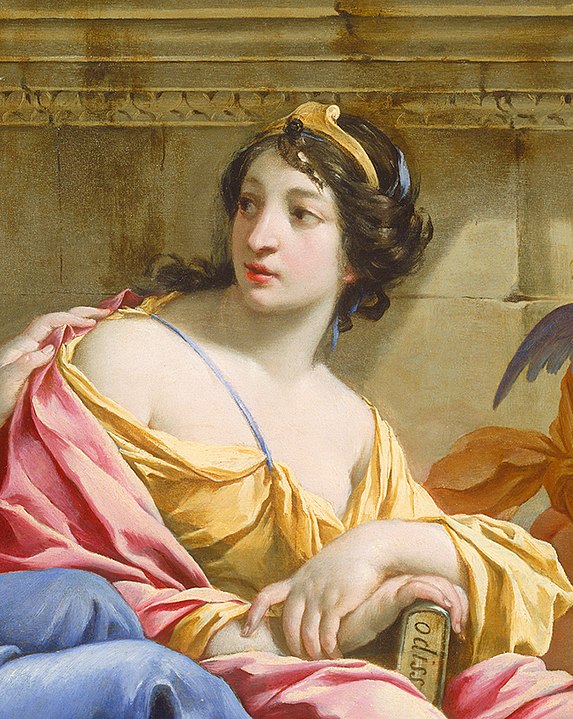
Public Domain.
In any case, this shows that Orpheus's gift was not a random event, having such a mother and with Apollo by his side or being his father, his talent was inherited. Due to his origin, some attributed him also the power of eloquently speech and prophesizing.
Was Orpheus a mortal or a god?
Many authors claim he was a mortal. But let’s see if his parents were Calliope and Apollo, Orpheus was definitely not a mortal. Apollo was a god and Calliope a muse, and muses were considered sort of goddesses too. If his parents were Calliope and Thracian King Oeagrus, Orpheus was a demigod, son of a goddess and a human. This makes sense because demigods could not escape death… and love just like we humans!

What are the most famous tales about Orpheus?
Orpheus took part in different adventures in which the music, his gift, was life-saving. Consider that the enchanting power of his voice and lyre stopped even the wildest rivers. They stopped their savage currents from flowing just to listen and enjoy Orpheus's music. It was such a useful gift, wasn’t it? Some of the most famous tales (myths) about Orpheus are:
Jason and the Argonauts
This myth revolves around Jason, a Greek hero, and his quest to retrieve the Golden Fleece, a symbol of authority, honor, and kingship. Jason was the rightful heir to the throne of Iolcus, however, his uncle Pelias usurped the throne and exiled him. To reclaim his rightful place, Jason embarked on a perilous journey to Colchis (currently Georgia), where the Golden Fleece was guarded by a fierce dragon and hung from a sacred tree. It was a dangerous quest so Jason recruited a group of heroes: the Argonauts.
Orpheus was one of the Argonauts and his musical talents were essential during this expedition. He used his music to soothe savage beasts and fears, comfort his companions, tame storms, treacherous waters, and the dragon itself.
| Follow PackAndGo.info at: | |
| YouTube | @packandgo. |
| @packandgo.info | |
| X | @packandgoinfo |
| Bluesky | @packandgo.bsky.social |
| @packandgo.info | |
| TikTok | @packandgo.info |
Orpheus vs the Sirens
During the Argonautic expedition, Orpheus encountered some of the most fearsome creatures from Greek mythology, the sirens among them.
Sirens were creatures that would enchant their victims with an irresistible melody. They lured sailors passing by their rocky island with their mesmerizing songs, leading them to their doom by causing shipwrecks on the rocky shores. During the voyage of the Argonauts, they sailed near the dangerous sirens' island. To protect his fellow Argonauts from the perilous temptation of the sirens' songs, Orpheus did what he did best! He began to play his lyre and sang with such enchanting and harmonious melodies that his music drowned out the alluring voices of the sirens.
Orpheus and Eurydice myth
This is the tragic love story we mentioned at the beginning and we will tell you about it right now!
What is the myth of Orpheus and Eurydice about?
The myth of Orpheus and Eurydice is a tragic love story you can’t miss. Orpheus and Eurydice was a match that seemed made in heaven. After his Argonaut adventure, Orpheus met Eurydice, a shy and beautiful nymph, in a gathering. It was love at first sight... and listen! Once he saw her, there was no way back. She got enchanted and deeply in love right after listening to his voice and music. It was like a magical and beautiful spell she could not resist. It was physical attraction and also the effect of Orpheus's gift.
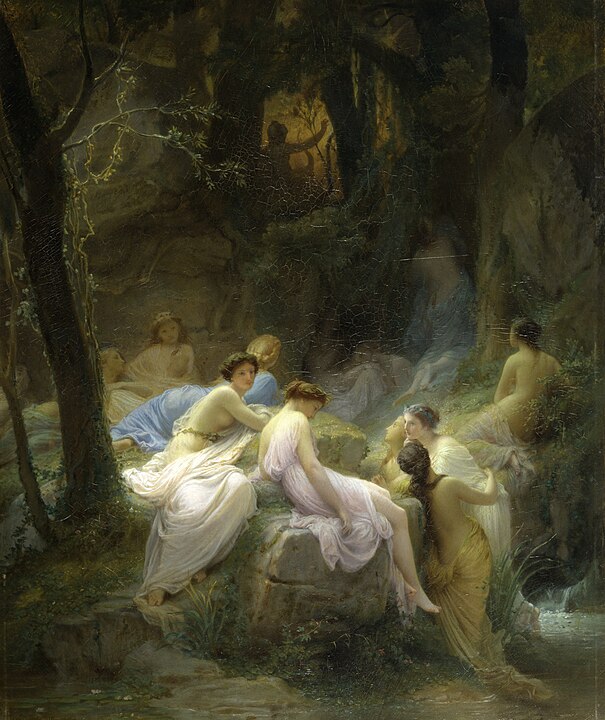
They became inseparable, a couple of lovebirds who could not hide their feelings for each other. Such a moment of Orpheus and Eurydice could have one of the following songs in the background:
- “Love is in the air” by John Paul Young (1977)
- "Can't Take My Eyes Off You" by Frankie Valli (1967)
- “Ho Hey” by The Lumineers (2012)
- “Fade into You” by Macy Star (1993)
- “Unchained Melody” by The Righteous Brothers (1955)
- "All of Me" by John Legend (2013)
- “Truly Madly Deeply” by Savage Garden (1997)
- "I Don't Want to Miss a Thing" by Aerosmith (1998)
- "Can't Help Falling in Love" by Elvis Presley (1962)
- "A Thousand Years" by Christina Perri (2011)
- "Love Story" by Taylor Swift (2008)
- "Crazy for You" by Madonna (1985)
- “I’m A Believer” by The Monkees (1966)
- "Perfect" by Ed Sheeran (2017)
- "Just the Way You Are" by Bruno Mars (2010)
- "Love on the Brain" by Rihanna (2016)
Can you feel the love and passion of this romance? Hopefully yes, otherwise you are not a human haha.
Soon, Orpheus and Eurydice decided to get married. Hymenaios, the god of marriage, informed the bride and groom that their happiness would last short. But the couple was madly in love and dismissed the warning.
The wedding day arrived, Hymenaios blessed their union and a great feast started. It was a great celebration, except for Aristaeus, a shepherd who despised Orpheus because he desired Eurydice for him. He plotted a plan and when the shadows grew large and everybody went home, Aristaeus hid in the bushes to kill Orpheus. When the newlyweds passed close by, Aristaeus tried to kill Orpheus but he failed. The couple desperately ran into the forest to escape from Aristaeus who closely chased them. Suddenly, Orpheus felt Eurydice’s hand slip from his grasp and then she fell.
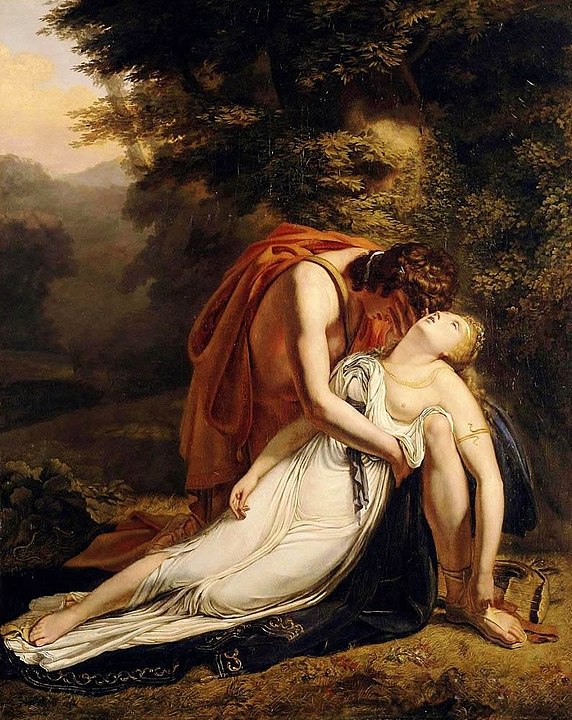
The beautiful bride was bitten by a venomous viper and in a few minutes, a deathly pallor suffused her cheeks. It was the tragic end of a great love. Orpheus got into a deep depression and grief. He played the most sorrowful songs ever. No creature was not moved by the pain of his music. To give you an idea, these could be Orpheus’ playlist at that time:
- “Ain’t no sunshine” by Bill Withers (1971)
- “Goodbye My Lover” by James Blunt (2005)
- “My Heart Will Go On” by Celine Dion (1997)
- “Someone Like You” by Adele (2011)
- “Wish You Were Here” by Pink Floyd (1975)
- “Here Without You” by 3 Doors Down (2002)
- “I Will Always Love You” by Whitney Houston (1992)
Then, he had a great but dark idea: to go to the Underworld and try to get his wife back. He asked Apollo to talk to Hades, the god of the Underworld, to let him in and hear his plea. To descend to the realm of the dead was another perilous journey for Orpheus. Using his lyre and voice, he played his mesmerizing music and mournful songs to persuade Cerberus, the three-headed dog, and the ferryman Charon, the guardians of the Underworld, to let him pass.
He managed to reach the depths of the Underworld, and there, he faced Hades and Persephone, the rulers of the dead. The beauty and emotional power of Orpheus's musical lamentations touched Hades, Persephone, and every stone in the Underworld. Both rulers agreed to grant Orpheus his wish under one condition: he could lead Eurydice back to the world of the living, but he must not look back at her until they reach the surface. If he looked back, Eurydice would return to the Underworld forever.
The deal was accepted and love was about to achieve the feat, but while ascending from the Underworld, Orpheus suddenly could not hear Eurydice’s footsteps behind him. Did he lose her? Did Hades break the deal? Unable to resist the urge to ensure she was truly following him, he glanced back before they reached the surface. That was tragic!
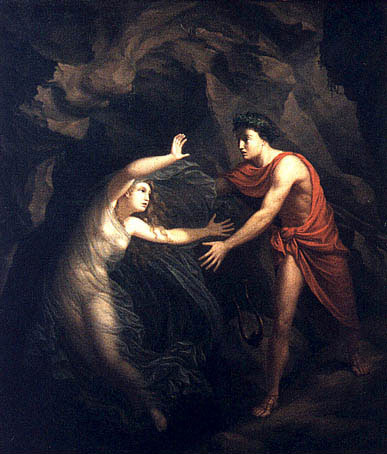
Public Domain.
Eurydice was instantly taken back to the realm of the dead and this time, forever. They were so close to making it! But he blew up the precious chance.
Orpheus was devastated and he spiraled into a deep, lifelong depression. His music and songs were dismal and he never looked for another wife.
How did Orpheus die?
After the tragedy, life sucked for Orpheus. He got back to Thrace, specifically to the Pangaion Mountain, where he literally cried out his soul! His music was the way to take out his grief. As a part of his routine, he daily climbed the Pangaion peaks to be the first to see the light of every day.
Orpheus started neglecting to worship Greek gods and goddesses. This made particularly angry the god of wine and pleasures, Dionysus. Besides, Dionysus's female followers, the Maenads, hated Orpheus because he refused them. He was not interested in women at all since the loss of Eurydice. Tired of Orpheus's grief and rejection, they decided to kill him.
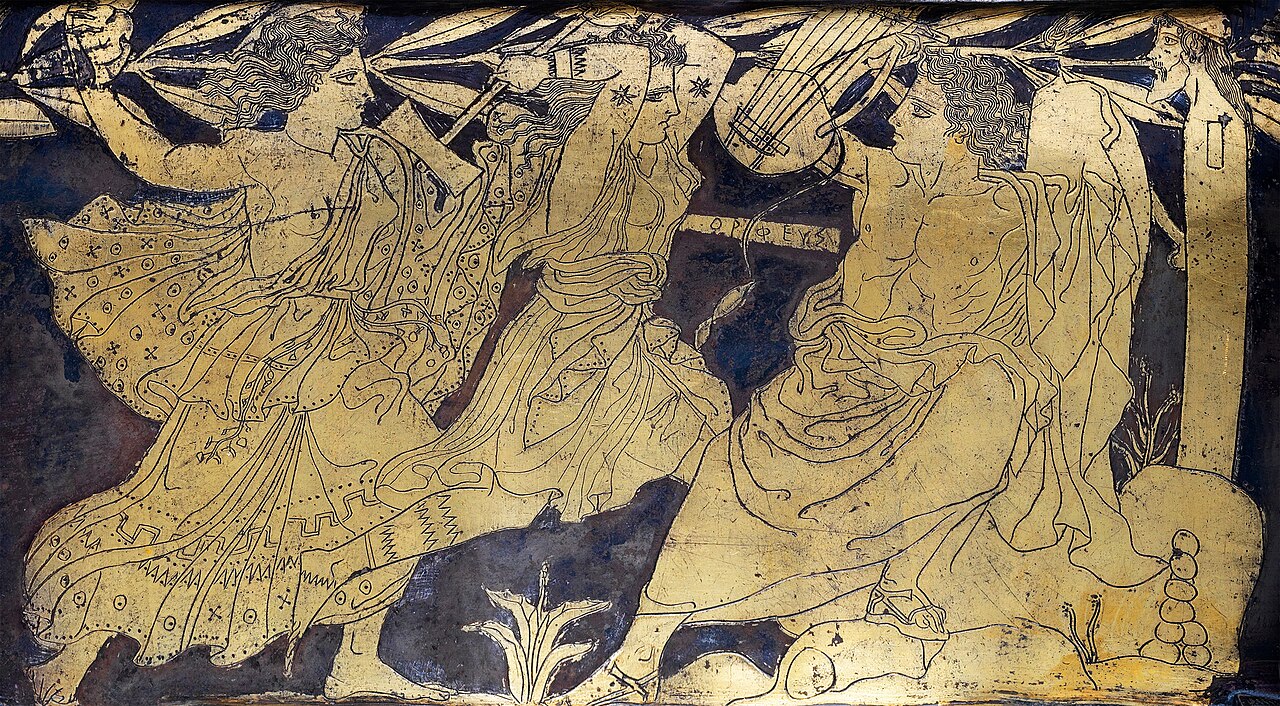
One day, while trekking in the woods of Pangaion Mountain, he encountered the Maenads. They attacked and tried to kill him by throwing rocks. But his lovely music caused the rocks to evade him, not to harm him. The Maenads got very mad. Killing Orpheus was not easy. They managed to attack him only when they started screaming and beating their drums until they drowned out Orpheus’ voice and music. Then, the Maenads finally killed him by tearing his body apart, limb by limb, with their own hands.
Where was Orpheus buried?
Early versions point out Pangaion Mountain as the place where Orpheus's remnants were buried. A further version tells Orpheus lyre and head reached the Hebros River, floated down until they encountered the sea, to finally arrive at the Lesbos Island pushed by the tides. The dismembered head of Orpheus -still singing- kept the power of speech, singing, and prophesizing. Aware of this, locals buried it and built a column of stone. With the power of the head, they started to prophesy. The rest of Orpheus’ remains were gathered from the Pangaion Mountain by the 9 Muses and buried in Leibethra, an ancient city at the base of Mount Olympus.
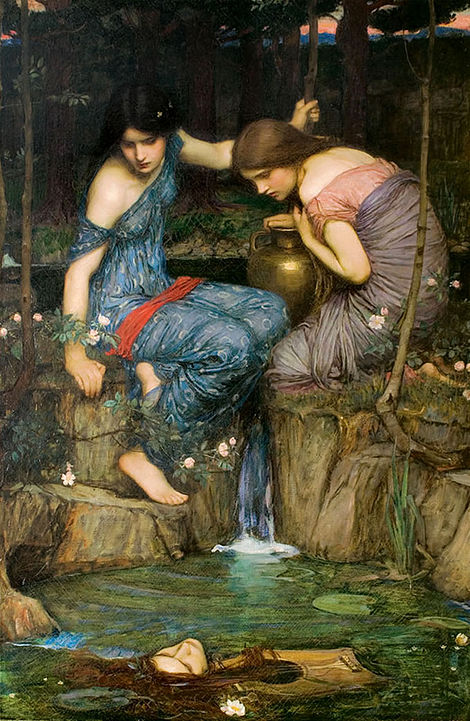
In 2002, a group of Greek archeologists claimed they found in Lesbos, the site where Orpheus remnants could be. But years later, Bulgarian archeologists announced that the place where Orpheus’ head was used to foretell was in Tatul, an archeological spot located in the core of the Rhodope mountain chain, close to the Kardzhali region.
To visit or not Pangaion Mountain?
Now, you know what happened in Pangaion Mountain. The place is also referred to as Pangaion Hills because its height is not very high. Its highest peak (Koutra) is 1,956 m. It is located in Northeastern Greece, 40 km away from Kavala City. It is close to other beautiful towns and beaches such as Palio, Nea Iraklitsa, Nea Peramos, and Ammolofoi Beach. Pangaion is a place rich in history, culture, and natural beauty. In the past, its ancient mines were a source of gold.

If you visit Pangaion Mountain, you can trek or hike the mountain trails, and enjoy the stunning scenery, have a look from the top to the Aegean Sea, while discovering remnants of caves and ancient settlements. The environment is calm and relaxing, ideal for outdoor adventures and to connect with Greek mythology. So, if your heart is broken, you can visit Pangaion Mountain and cry out your soul!
You can plan a longer stay on this nice mountain. We stayed a week in Pangeo Forest Village -10.93 km from Pangaion Hills- and we enjoyed it a lot. If you are into forests, nature, and mountains, look for Eleftherios, he runs the place and you can have the best time there following his recommendations and chatting about Greek history. The view from the restaurant is great, just like the Greek coffee (hot and cold) and the fasolada cooked by Eleftherios' wife!
You can book a room contacting Eleftherios (FB)!

A warning for you! When you visit Greece, behave! Collect your garbage, explore but without damaging the landscape, and leave everything as clean and untouched as you found it. Greece is a land of ruthless gods! They are permanently watching you and each of your moves. Remember you are only a mortal without any special gift, so don’t mess with them!

Conclusion
Greece is a great destination no matter the type of traveler you are. If you are into its deep history, archeological treasures, natural beauty, beaches, music, or mythology, it never disappoints! Follow our adventure in this land of gods, pleasures, and nice mortals. We still have a long way ahead.
You may want to read these articles too:
Kardzali is a hotspot for Turkish and Greek tourists, but not Bulgarian. Why?!
Why do youg people dislike Kavala?
It is official, Fanari has been occupied by Bulgaria!
Keramoti: The Beach Town You’re Not Visiting—And It’s Better Than Santorini!
| Follow PackAndGo.info at: | |
| YouTube | @packandgo. |
| @packandgo.info | |
| X | @packandgoinfo |
| Bluesky | @packandgo.bsky.social |
| @packandgo.info | |
| TikTok | @packandgo.info |
